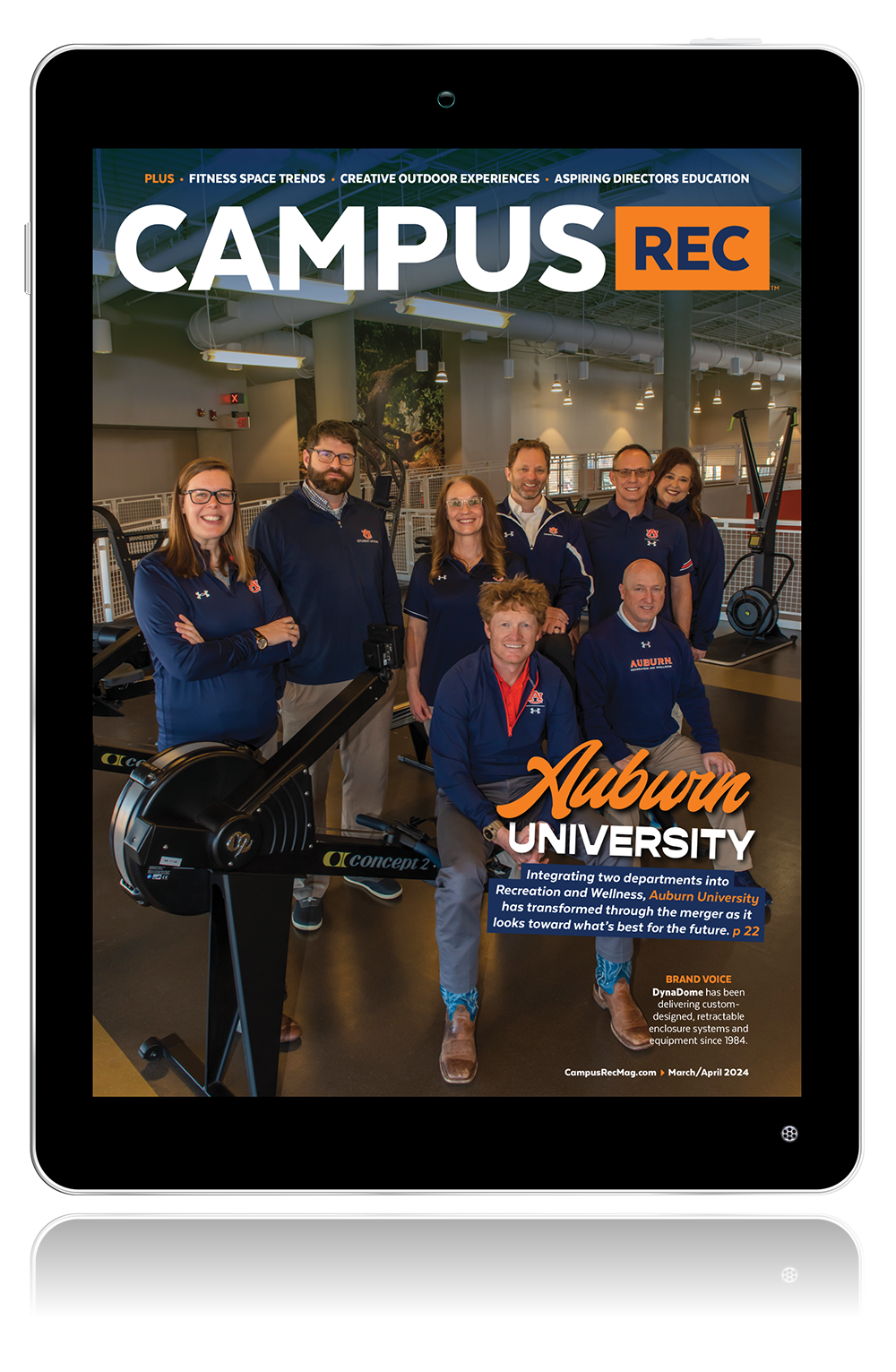One thing keeps coming up in the industry and that’s leadership development. Campus Rec Magazine spoke with David Knobbe about leadership development in outdoor recreation.
The Outdoor Recreation program at Georgia Tech offers around 140 different trip opportunities each year, ranging from white-water kayaking, vertical caving, rock climbing, back packing and much more.
In addition, students can participate in extended expeditions. These trips can include going to Canada, Alaska, Scotland and Belize, just to name a few.
“The Outdoor Recreation program at Georgia Tech is recognized as one of the premier leadership development experiences on the university campus. This isn’t necessarily so for our trip participants, but for those students who lead adventures. I would hazard to say the same is likely true of outdoor recreation student staff at campuses across the country,” said David Knobbe, the assistant director for outdoor recreation at Georgia Tech. “We work with somewhere around 4,000 unique individuals every year. We provide about 10,000 experiences per year. As such, we are impacting probably close to 20 percent of the student body in a given year.”
Below is the full interview with Knobbe on this topic.
Campus Rec: How does one become a student leader?
David Knobbe: The first step is to go through the instruction progression, which usually is two trips, a beginner and an intermediate trip. If they show interest and aptitude we will nominate them as an instructor in training. If they choose to become an instructor in training, I sit down and meet with each individual and do an hour-long interview and orientation. There is a training progression that goes from instructor in training, to instructor, to trip leader that may take as long as two years for individuals to progress through. Other students and alumni mentor them throughout the process. We build a community that really provides people with vision and a lot of other opportunities.
CR: What qualities do you look for when hiring student staff?
DK: We are looking for individuals who are excited and motivated. Leading adventure trips does not require casually hired and trained activity leaders. It requires committed individuals with sharp skills and keen instincts. They need to continuously track and manage hundreds of variables. These evolve as they manage groups, sometimes in foreboding environments.
CR: What type of leadership skills do students learn through leading these trips?
DK: Students engaged in leading adventure trips learn indispensable skills including coaching, risk management, problem solving and decision-making. When you are leading outdoor adventure trips, things happen, so students need to be aware of risk issues, liability issues and make sure people are prepared.
We stress to our people that one of the most important roles of a leader is to create other leaders. Our student leaders understand that their role is to coach participants to higher performance. We want them to coach participants to have better outdoor skills. It’s key to also coach them to be better leaders, teachers and members of a team.
Having been in the business for a while, it is pretty amazing to see the transformation that can happen. Individuals come in saying they want to do fun things outside and they end up walking away having developed these invaluable skills that allow them to lead, plan and manage complex group dynamics and I think that is one of the under-recognized values of outdoor rec programs.
CR: How can students better ‘sell’ these skills to prospective employers?
DK: One of things that we really put a lot of effort and energy into is to help students view their experience not just as leading some outdoor trips, but developing skills to make them more marketable after they graduate. A degree from Georgia Tech will open the door and get you an interview. But a degree will not get a person hired. They need to find a way to understand their skills and promote those skills. An employer will want know what they have done in the past that demonstrates they are going to fit into the company.
We sit down with our student and offer to proofread resumes. Plus, we provide examples of how they can demonstrate what they have learned. We spend a lot of time providing feedback for our students to really help them take stock of who they were before and who they have become as a result of the program. They think about their experiences and what is the evidence that they have effective leadership skills.










